
In the penultimate section of the penultimate book of Finnegans Wake, Joyce's dreaming hero, imagining himself to be a figure called Yawn, is submitted to an interrogation involving a variety of modes of hermeneutics-historical understanding, psychoanalytic interpretation, modem spiritual self-reflection-before emerging as the awakened "democratic" man announced by radio broadcast at the beginning of the Fourth Book, which opens with the revolutionary outcry:
Sandhyas! Sandhyas! Sandhyas!
Calling all downs. Calling all downs to dayne. Array!
surrection! Eireweeker to the wohld bludy world. 0 rally,
0 rally, 0 rally! Phlenxty, 0 rally! (FW: 593.01).
Here communication technology operating in the interest of a revolution oriented towards participatory democracy is related to the liberation of Ireland from England. In the process Joyce examines the images of domination and control with which he was obsessed at the beginning of his writing career: church, state, family. In a brief article it is not possible to explore such questions as: Joyce's satire of Freud and Jung (paralleling that of Deleuze or Artaud) in the figure of Alice, who is "jung and easily freudened," to use a familiar example; nor of the nationalist entrepreneur Napoleon; nor, the cynical manipulations of the Church throughout the history of Europe; nor the "papa" figure behind the "Gestapose" (FW 332.07),to mention only a few.
Two key theoretic conceptions developed by Joyce in his youth are central to understanding these issues: his concept of epiphany (a term often echoed by John O'Neill in his writings on social theory) and his concept of vivisection by which poetry produces a dynamic imaginary reproduction of the everyday world. It does so by playing with the signs by which the world communicates with itself. Most poetic works, in one of their aspects, present sociology in action through such a vivisective process :
This vivisective concept implies that the poet-artist explores communicative activity, for the community in action manifests itself in communicating. The Epiphany, a moment of intense clarity, renders forth the specific nature of a material, verbal, or imaginary artefact, whether it is an object, an event or a turn of phrase.
-The modem spirit is vivisective. Vivisection itself is the most modern process one can conceive. The ancient spirit accepted phenomena with a bad grace .... The modem method examines its territory by the light of day .... All modern political and religious criticism dispenses with presumptive States, [and] presumptive Redeemers and Churches. It examines the entire community in action and reconstructs the spectacle of redemption. If you were an aesthetic philosopher you would take note of all my vagaries because here you have the spectacle of the aesthetic instinct in action (Joyce, 1955: 186).
Read Don Theall's MARSHALL MCLUHAN AND JAMES JOYCE: BEYOND MEDIA

Date: Mon, 03 Jun 2002 14:01:10 -0400
From: Donald Theall
Hi Bob,
I really appreciated your note on MM and the JFK matter. I never
realized that Wilhelmsen was Eric's link with Dallas, nor did I fully
appreciate the RC connection.
But as an added fascination Bill Buckley and Brent Bozell (now
deceased) who married Buckley's sister were classmates of mine, both
graduating from Yale, as I did, in 1950. While they were socially in
a
far different sphere from me, we had contact through the Catholic
organization on campus -- the St. Thomas More society, and I served on
the board with Buckley.
I never fully realized MM's associations with what I would have
considered the shady side of Catholicism. Although I knew he was
conservative and narrow in beliefs, I didn't know of the full range of
associations.
Work on MEA progresses slowly, but surely. By the way, are you
planning to attend Frank's talk? I mention it, because I thought our
setting up a Sunday meeting with Stern would probably be best. Joan
and
I now knowing of Frank's talk had planned to pack out of NYC for City
Island Sunday morning, closing our contact with the conference on
Saturday night. Our plan was to leave for home on Monday, but it is
flexible, since we are driving, if necessary.
By the way, there were three successive AP articles posted by AOL
which
made it abundantly clear that Bush wants to stage a war -- another
memory of "Bright College Years" and the fifties.
Donald
Date: Mon, 24 Dec 2001 12:47:36 -0500
From: Donald
Bob Dobbs quoting McLuhan's letter to a journalism student in which
he
discusses _Finnegans Wake_ most appropriately ties Joyce's activities
partly to taking on H.G. Wells whose assistance he had sought in
becoming a promoter of the _Wake_, which Wells refused to do in a
long,
polite and complimentary letter. Joyce respected Wells work in
history
and science as well as SF, but Wells could not see that Joyce's night
language was even more "scienctific" than his language of daytime
reason. In the era in which Richard Gerlernter, the Yale computer
scientist, can stress the importance of analogy and dream (_The Muse
in
the Machine_) if we are to grasp a full sense of the object of study
of
cognitive science and AI, Joyce is closer to some aspects of
contemporary science than Wells was. In his argument Gerlernter does
not mention Joyce, but he does speak about the Joycean domain of
research and alludes to such figures as Borges.
When McLuhan mentions the "switch of the real world into science
fiction" marked by Joyce's play with language and his affinity with
body
language and games, it is clear that Joyce and in a somewhat different
way, McLuhan, shared an interest in language games. Gerlernter, like
McLuhan, is arguing for the importance of what is associated with the
right hemisphere, of which Joyce's later works are prime examples. It
should be noted that the futuristic journalism that Joyce was doing
has
come to be, but that his futuristic journalism is always already ahead
of that of the futuristic journalists, since he is engaged in
relatively
disinterested playfulness, or at least a playfulness that is engaged
in
a satiric multiplicity of meanings and ambivalence ñ the same game
that
McLuhan picked up from Joyce and used with his playful probes,
themselves a form of futuristic journalism.
It is useful to note that the young McLuhan ñ that is in the 1940s
and
1950s read science fiction and even later refers occasionally to SF in
his work. Why probably less of it occurs as he goes on is that he
sees
Joyce as providing the SF of what Gerlernter calls the "cognitive
spectrum" ñ the range from pure rationality to dreams and the inner
person. And like Joyce, McLuhan could admire the range from the
language of rationality which he insisted he could practice quite well
when he wanted to do so and demonstrates this in his literary critical
writings and articles associated with the trivium and yet
simultaneously
go in for the playfulness and waking dreams of his other writings.
Donald Theall
Date: Fri, 10 Jan 2003 13:44:02 -0500
From: Donald Theall
Since I have been cited on a couple of occasions in the discussion
about McLuhan and Powers _The Global Village_, I felt that I should
probably clarify my views about this and the other posthumously
published book, __The Laws of Media_. Both of these books, whatever
new
material they may contain, hark back to the issues that meant most to
McLuhan at the very outset of his project in the 1950s. Neither of
them
has the "poetic" thrust of McLuhan's other works, though _The Laws_,
because of the tetrads is more successful at retaining some of this
than
_The Global Village_. Nevertheless both of them in their
direction
are looking back to those beginnings. For _The Laws_ this is apparent
in the predominance of materials relating to the trivium, to Joyce and
to modernism in general. In _The Global Village_ it is marked by the
numerous references to the work of Giambattista Vico. But more
important is the way the McLuhan-Powers book harks back to a key issue
of the early 1950s, angelism and its gnostic and esoteric
associations.
Consequently, it is fair to say if one wants to read McLuhan as the
poet/prophet, _The Global Village_ is the least satisfying and perhaps
the least close to "genuine McLuhan" if there is such a thing. But
what
strikes me as most important (and I suspect it struck Marshall that
way
as well when he was working in collaboration with his two independent
"notetakers") is that these are the writings of someone at the end of
their career trying to fill in a lot of information about the gaps.
It
would be unfortunate to write _The Global Village_ off as part of the
McLuhan cannon, because there is so much information here about the
matters that preoccupied McLuhan in the mid-1950s. I suspect he put
the more topical stuff in _The Laws_, (though the tetrads are really
not
really that new in _The Laws_ since MclUhan had been playing with such
four part diagrammatizations since the 1950s) while keeping the less.
immediately exciting to _The Global Village_. But we must realize
that
both books are retrospective, and as such filling in. They are made
of
the stuff of thousands of 3x5 cards which McLuhan kept in Laura Secod
candy boxes in the 1950s and which were the material from which he
made
his intellectual poetry.
Donald Theall
Date: Sat, 12 May 2001 12:43:17 -0400
From: Donald Theall
Hi Bob,
Eric certainly has a way of half-grasping what is going on with
Marshall. I thought you might be interested, if you did not already
remember, in what Pound actually says and how what Marshall says about
a
"mental dance", while it may have been inspired by it, profoundly
differs from it.
The most extended text of Pound's on "the dance of the intellect
among
words" is in _How to Read_ where he says that poetry is language
charged
or energized in various ways. There are three ways melopeia,
phanapoeia, and logopeia. The first is words charged with some
musical
property which directs the bearing or trend of the meeting; the second
"is a casting of images upon the visual imagination", as for the
third:
"LOGOPEIA, `the dance of intellect among words', that is to say it
employs words not only for their direct meaning, but it takes count in
a
special way of habits of usage, of the context we expect to find with
the word, its usual concomitants, of its known acceptances and of
ironical play. . . . It is the latest come, and perhaps most tricky
and
undependable mode."
In other words Marshall speaking of speech as a mental dance is quite
different from Pound's discussion of poetry. It is also interesting
to
note that Pound was suspicious of poetry which emphasized logopoeia,
preferring the visual and musical energizing. The master of combining
logopoeia with the other two is certainly Joyce's Wake and we know
what
Pound thought of Joyce's Wake.
Marshall speaking of speech as "mental dance" might reflect an
adapting
of Pound, but I suspect it is rather his describing his own peculiar
kind of quasi-poetic speech and perhaps, although not necessarily,
thinking of a work in which "the scheme is like your rumba round me
garden" (309.7). There is considerable justification for speech as a
mental dance also among some of the symbolistes.
In fact when he speaks of "the dance of meaning" in _Cliche_, he
follows it with a quote from the _Wake_ (109.12-5). There are
discussions of these problems in my thesis with respect to Pound and
Joyce.
I sent the item off to The Boston Herald, but it probably won't get
used now that the action on the McVeigh affair has entered a new
stage.
If they ever have the execution, just imagine how much that video-tape
would be worth. I can't imagine that it wouldn't get in more general
circulation.
Best.
Donald
Date: Mon, 30 Apr 2001 14:27:14
From: Donald Theall
So many interesting issues have been raised in the last few days on
the
McLuhan line, it is difficult to respond to all of them as they
occur.
But there are two discussions to which I'd like to make a
contribution.
The first, I believe initially opened up by Francois Lachance,
involves
rhetoric and dialectic. What is important to complement the subsequent
discussion is that McLuhan as early as his notorious, but seldom read,
Nashe thesis stressed that the important aspects of the discussion of
the history of the trivium were for him related to grammar and to
poetics.
For McLuhan grammar was the primary aspect of the trivium, but the
most
important discipline was poetics. As he notes in the thesis, citing
Aristotle, Aquinas on Aristotle and various Renaissance thinkers,
poetics is the universal science ñ perhaps in Viconian terms, the "new
science" ("new" since it was unthought of as a science among
Enlightenment scientists).
Without going into all the details of the thesis or other references,
poetics embraces grammar and rhetoric as well as those aspects of
dialectic which do not give dialectic or logic an overwhelming place
(such as in many of the Scholastics [not Aquinas] and in Ramus). The
enemies of the poetics McLuhan promoted as he puts it in the thesis
are:
The ignorant
Pretenders to learning & taste
Powerful class of civil lawyers & likewise medical men
Who despise it because poetry does not get wealth
Philosophers, dialecticians ñ scoff at frivolity & mendacity = liars
Schoolmen
Most powerful foe is puritanical theologians.
There is much more that could and will ultimately be said, but for
McLuhan rhetoric matters and dialectic has place because grammatica is
the ground of poetics.
The second motif has to do with some of the implications of Zagreus
in
_The Apes of God_. While all that has been said about Zagreus's role
is
present in the action of the work, the choice of the name Horace
Zagreus
and what circles around it is very significant. Horace would seem to
be
a pun on Horus and Horace, while Zagreus-Dionysius is a name
associated
with the inner depths of the Eleusinian mysteries ñ all tied up with
Lewis's refrain about the freemasonry of the arts in _The Apes_ ñ a
theme picked up from a similar play on the mysteries and the emergence
of the occult in the Enlightenment in Pope's _Dunciad_ (a work which
provides the climax to _The Gutenberg Galaxy_).
McLuhan's fascination with the Eleusinian mysteries is well-known.
So
the whole motif of Dionysiac embodiment in both its pre-Christian and
pre-Masonic directions are implicated. One might also note the play
of
Horace (Horus) and the Dionysiac carnivalesque, which involves the two
aspects of the satiric.
Best wishes,
Donald Theall
Date: Mon, 25 Nov 2002 19:44:21 -0400
Reply-To: Donald Theall
I thought that I should clarify what I had said about a
conversation with President
Jim Ham, since I did not make it precise enough in the original
mailing. My
conversation with Jim Ham on a walk from Convocation Hall to Hart
House was either
on the morning on which the announcement first hit the international
press or the day
after. (To the best of my recollection it was the same day.) In any
case, I did not mean
to imply that Jim did not know the program was under review and in
trouble, but that he
had not been informed that a final decision had been reached before
the matter was
released to the press. I am certain he had not been informed because
he had said that
he went into his office around 7:30 A.M. that morning and, totally
unprepared, had been
besieged by phone calls. He was visibly angry about it and Jim was
certainly a most
straightforward and honest person. I shared sympathetically with him
about his anger,
since being there in a much smaller way myself I was familiar with
just what the
problems of such an office involves.
I never spoke about this before, but I think that it was
important to do so now,
since it reveals the kind of internal politics around the McLuhan
issue at the U of T. I
suspect that the President was not informed about the final decision
before its leakage
or release so that there would be no further ambiguity that "this was
it". Obviously that
strategy did not work in that the Center was reconsituted.
With respect to what has been said about St. Michael's, even
though many
Basilians had ambivalent views about McLuhan, it was unreasonable to
expect the
College, which had to operate totally independent of public funds from
the Provincial
government (unlike the University) and whose budget was minuscule
compared to the
university, to foot the bill. This would have been doubly true, since
there was
considerable tension between the Colleges and the University during
this period in
which Claude Bissell and his successors were successfully shutting
down the traditional
college system. I can attest to this, since during the period from
1960 to 1964 I was the
College's representative on the President's Council (i.e., the
President's internal
cabinet) and was privy to the entire debate that occurred about the
College system.
Northrop Frye, (Victoria College's representative) and I drafted and
presented a
defence of the college system and a critique of the University's
plans. I won't go on
further with this, since it is not direcly relevant to McLuhan, but I
point it out to suggest
that I had a very extensive "insider's" knowledge of the finances and
of the feelings
between St. Mikes and the University. While I left St. Mike's for
what seemed greener
pastures where I could develop communications, I deeply sympathize
with their not
being able and/or willing to finance a Center from which the
University would largely
profit both in PR, prestige and financial donations.
As for Mark Stahlman's remarks about the broader opposition to
McLuhan and
its political impact on what he was trying to achieve, this was a
fundamental fact, which
still goes on. It certainly had its overlap with significant secret
and private groups which
did not appreciate the type of vision which McLuhan was crafting. The
surface effects
of this are well recorded, but the covert ones, less well recorded,
were equally
important. Mark's view of Marshall as a Lewis style "enemy" is dead
on and confirms
that he was not a victim in any simple sentimental sense in fact,
probably not at all,
because he and his advisors and later the estate could be rather rough
in their own
way.
Just as I was finishing this I got the additional note about the
$600M price tag on
the papers. That is true (though I understand the National Archives
paid more). Yet a
small university in the U.S. was promoting a bid for the papers and in
addition for
McLuhan's coming there. In 1980 Trent University (which was where I
was) had a
budget large enough that that amount was about 1% of the budget. The
University of
Toronto at that time was probably twenty-five times the size of Trent
and had large
endowment funds and a large alumnae. While no institution finds it
easy to raise
amounts in the order of half a million, considering the long term
value both academic
and promotional, it would not have been impossible to pull this off,
if there had not been
a lot of internal and external opposition. It should also have been
possible to negotiate
a long term arrangement with the family and the Estate. Nevertheless,
seeing that most
people donate papers in return for tax deductions, it is easy to see
how this could be
made to seem unreasonable. As for the University's financial
problems, this was the
Instituion promoting itself as the Harvard of the North. The bottom
line is that the will
was not there. Whether this was the correct decision or not at the
time depends on
your valuation of the McLuhan legacy, which was not appealing to the
scientific or
professional areas of the University and their view was reinforced by
social scientists
who then opposed him, because of his opposition to empiricism, and by
humanists who
did not want to foresee where the humanities would have to be
situating themselves to
remain relevant as the end of the millenium approached (as represented
in such works
as _Multimedia: From Wagner to Virtual Reality; Lev Manovich's _The
Language of
New Media_ and such updatings of modernism as Sara Danius _The Senses
of
Modernism_ as well as the work of Benedikt, Laurel, Hayles, Poster,
Ulmer, Tofts and
many others [all of which give a nod to McLuhan, but do not confront
his full role in their
projects]).
My apologies to those on the list not interested in these
details, but I felt that
those aspects of the record should be set straight. I still fully
agree with Michael
Edmunds that the ultimate problem was that the whole development of
McLuhan's
vision was starved and that now with the rise of media ecology, the
new interest in the
arts, the humanities and the new media languages as a result of
digitalization and
media convergence that was a great loss.
Donald Theall
Date: Sat, 30 Sep 2000 19:07:29 -0400
From: Donald Theall
Dear Bob,
I finally can get back in touch. The final proofs and index went off
to
the publisher on Thursday night. It was quite a marathon, but it all
looks in good shape now. The book will appear late 2000 or in the
early
part of 2001 (certainly in time for Philadelphia).
Yesterday I received a note from Michael Edmunds. He mentions that
perhaps there is something that he and you might like to do with the
tapes. That might be particularly useful if it were timed for the
release of the book in early 2001. It could also be useful for your
McLuhan conference.
In Michael's note he included a review of a recent Canadian book on
founders of communication studies in Canada which if you have not seen
it might interest you. Let me know if you have not seen it. It is a
National Post review by Dennis Duffy (who wrote one of the early books
on McLuhan) of a book by Robert Babe of Ottawa U.ñ a rather "official"
view of the development of communication studies in Canada.
I enjoyed seeing you alerted NLC to Trudeau's death. Trudeau really
lured me into becoming Canadian. In 1967 we had a sign on our hill,
which dominated part of the Lakeshore, supporting Trudeau. Joan and I
were happy to be in his presence on New Year's Eve 1976 when he and
Michael Manley, the Prime Minister of Jamaica celebrated New Year's
Eve
at Negril Beach Village (then owned by the Jamaican government) and we
were amused the next day while sunning on the nude beach to see Pierre
accompanied by an attractive young woman strolling out to the point of
the beach to snorkel, followed by an obvious RCMP officer (not in
uniform) but in a pair of beach trunks carrying some sort of object in
a
towel, obviously his gun, while various rowboats and other small boats
with obvious Jamaican security patrolled the shore.
While we were finishing the Virtual McLuhan, I have also been playing
around simultaneously with Lewis; with the new project that is
initially
associated with Lewis as well as Duchamp; and with the Joyce
language-religion stuff I sent you before (which fits with Lewis and
McLuhan).
One aspect of the Lewis side is my remembering that he discusses the
relation of his approach to the cynical at the very beginning of _Time
and Western Man_ as well as elsewhere. A U of T thesis I'm reading
uses
this to distinguish between Lewis and the cynical by associating Lewis
with what Sloterdijk has described as the "kynical", but it also shows
that Lewis was fully aware of the grounding of his approach in the
cynical tradition. Nevertheless, Lewis from his perspective would
have
regarded McLuhan (but not himself) as cynical. Lewis held that his
position while destructive was not cynical in the sense of the Cynic
philosophic tradition with which Diogenes was associated. On the
other
hand, he also would have considered Joyce "cynical" ñ perhaps the
source
of the McLuhans interpretation of the _Wake_'s cynical satire.
But Lewis, like Marshall (both of whom have strong Puritanical
streaks)
did not appreciate the carnivalesque world of Joyce and Varro. It is
interesting to note that Lewis in TWM strongly prefers Thomas Nashe to
Rabelais, which may explain part of McLuhan's early fascination with
Nashe. It is, of course, more complicated in that Lewis also claims
that Joyce uses Nashe, but ultimately downplays this interest to that
of
Rabelais and other carnivalesque medieval and Renaissance satirists.
I
had encountered much of this before, but had forgotten it until I
started having to check references while reading a doctoral thesis on
Lewis and Vorticism as an external examiner for U of Toronto,
More to the point of the earlier issues I raised, though, is that
Lewis
attacks Joyce as a pantheist, confirming the observations I made about
his approach to the sacred as secular. Marshall shared with Lewis a
negativity about pantheism directed at the Romantics. While Joyce
was
not a pantheist in Marshall or Lewis's sense (based on eighteenth
century Deists or the New England of the 19th), he did have a
commitment
to the sacredness of Natura redefined in post-Leibnizian terms of late
19th and early 20th century science and mathematics. All of this has
complex relationships with theosophy and other occult movements,
although by returning it to the everyday world of ordinary life and
the
techno-scientific transformation of it, Joyce presumably thought he
was
moving it beyond cults to the mainstream vision of Anna Livia as the
natural world., which naturally involved satirizing religions and
nationalisms. Lewis and Joyce, however, were not that far apart, but
ultimately Lewis's up-tightness kept him from going the whole way.
I'd go on, but with the end of _The Virtual Marshall McLuhan_ and an
endoscopy I had this week, both of which have left Joan and me
exhausted, I'll save it for a later communication. All our love to
you
and Carolyn
Donald
Date: Sat, 31 Mar 2001 20:37:30
From: Donald Theall
Dear Francois,
The letter to which you refer being from 1948, I would suggest that
McLuhan's sense of the eighteenth century would be largely as the era
of
Cartesianism and would be strongly coloured by Jacques Maritain's
interpretation in The Dream of Descartes (1946). A short while later
McLuhan developed a much more complex understanding of the 18th
century,
which is confirmed by the way in which he uses Alexander Pope in the
conclusion of The Gutenberg Galaxy.
That being said, McLuhan's fix on Aristotle and dialectic as well as
his understanding of rhetoric come out of the work on his Nashe
thesis.
He was familiar with the Organon since he looked at all of the works
of
Aristotle associated with grammar, logic, rhetoric and poetics in
working on that project. His readings of them could be a little
quixotic, but basically as Carlos's remarks indicate he favoured
rhetoric and grammar in contradistinction to dialectics. In fact, he
saw the eighteenth century tradition as emerging from Ramus who as a
dialectician restricts rhetoric to its first wo parts: discovery and
invention over the other three. His Nashe thesis is a key to the
background of this letter for in it he analyses in each chapter the
nature of grammar, dialectic and rhetoric for a particular period from
ancient Greece to the Renaissance.
The other key is his having arrived in Toronto at St. Michael's'
College with its Pontifical Institute of Medieval Studies in 1946
where
the doctrine of analogy in Thomas's works was a hot subject of
discussion. After that his understanding of four part structures of
analogy are all coloured by a Thomistic and/or neo-Thomistic
understanding of the doctrine of analogy. But it undergoes many
transformations from 1948 until it begins to surface in his NAEB
project
in 1960 and develops into the exposition of the tetrad rooted in the
late 1950s which appears in _Laws of Media_.
In the early 1950s when he and I explored Pope, he discovered partly
through Bill Wimsatt's work, the significance of the four-part
structure
of the Popean couplet with its relations to the logical square and
realized the relations between Pope, Montaigne and Pascal, which
together with Pope's playing with logic again coloured the way he
looked
at the whole problem of four part structures, analogy and dialectic.
Of course, dialectic does not preclude four part structure, since
there
is a dialectical basis for Aquinas's work as well as Aristotle's. But
in his usual hyperbolic way and in keeping with the thesis, McLuhan is
arguing that the dialectic as the precursor of the Newtonian-Cartesian
world should be set aside in favour of a grammatical (i.e., after
Gadamer, etc., ñ hermeneutic) and a rhetorical approach. In the
thesis
he does not reject Aristotle and certainly did not do so later in
terms
of the importance of Aristotle to the Thomistic tradition which he
embraced.
The aspect directed towards the U. S. is well covered by _The
Mechanical Bride_. He saw the States, launched in the eighteenth
century on Lockean philosophy, as mechanistic and dialectical, a
creation of Descartes, mechanism and the new science.
Naturally, there's a lot more and much needed refinement and
qualification. If you'd like to discuss it off-line I'd be happy to
do
so.
Donald Theall
Date: Mon, 23 Oct 2000 20:07:13 -0400
From: Donald Theall
Dear Bob,
In view of the "difficulty" of using the original drawing, I thought
that you be interested in the modification of the Lewis drawing of
Marshall which I suggested to McGill-Queen's as one possibility. ó
Place a Canadian Red Maple Leaf flag on the upper part of his tie; a
British flag, on the right shoulder; a French flag, on the left
shoulder
and a globe of the world with a U,S, flag on top of it, in his hands.
This not only works for Marshall with his intense commitment to Canada
and its vantage point in observing the vortex; his loyalties to French
symbolisme, avant-garde art and French neo-Thomism; to U.K. (British
and
Irish) high modernist literature and art and British universities; and
his fascination with American everyday life, culture and the twentieth
century American arts, popular arts and new arts. It also works for
Lewis: born in Canada and traveling life long on a Canadian passport
as
well as having a prolonged and significant visit to Canada in the
1940s
which produced one of his most powerful novels; living his early
childhood in New England and returning to the States during the Second
World War; having his later childhood and adulthood divided between
Britain and France (with the British portion taking priority).
I have no idea whether McGill will be interested or not, but I think
it's one valid approach. Perhaps if they don't use it, we can produce
a
website with an image of it or a poster???!!!
I also wanted to pick up briefly on the "new historicism" about which
I
was not too responsive when we chatted. First of all, if you were
associating it with Frank Lentricchia, author of _After the New
Criticism_ (1968), he is certainly not generally recognized as its
founder, or even a major player ñ although he obviously wanted to
restore historical and contextual issues to critical reading of texts,
It is called the "new historicism", because in many ways it revisits
historicism that began with Herder in the 18th century and queried the
ways in which historians living at a given time and place may
legitimately study the history of another time and place. This
involved
either looking at history as solely of the past or through the present
being a manifestation of that past. Later in the late 19th and early
20th C.it became involved with the philosophy of interpretation
through
Dilthey and more recently Gadamer.
After the rise of the New Criticism in the 1930s with which Marshall
was so involved (but always a kind of closet historian and
historicist),
the use of history was so profoundly questioned that in the late
1960s,
movements arose inspired by structuralism, semiotics, etc. which
established a "new historicism" (frequently quite critical of
Derridean
deconstructionism).
New historicism is dated by some as beginning in 1972; others earlier
by Stephen Greenblatt and his colleagues at Berkeley. But it never
really became a single school, being not a doctrine but a
consolidation
of themes, preoccupations and attitudes associated with history,
interpretation, context, society, culture, etc. Many of them were
particularly critical of Foucault and DeMan. In some ways cultural
studies has become a new historicist kind of project. It is in a way
conducting historical interpretation with a constant questioning of
the
grounds of writing history and carrying out interpretation and
involving
a broad, contemporary range of disciplines ñ rhetoric, semiotics,
structuralism, etc. Ironically, although he would never be so
recognized, McLuhan should have been regarded as lured by, if not
practicing, a new historicism.
I realize this is still very unsatisfactory, but it is a large topic
and like many theoretical topics, partly a question of people staking
out space for their divergencies from others. But if you are
interested
I can discuss it more (or give you some references to encyclopedia of
critical theory, which will lead into it. I guess, if I were saying
what I think. In a non-academic context, I feel such critical writing
of
history and interpretation of texts always should have been and always
is the way to go and that the questions involved are pursued in the
debates about time by Bergson, Lewis, Joyce, McLuhan et al, including
some of my own work.
Anyway I'm still kind of rushed. Hope the first part of this amuses
you and this latter part is of some use. J and I send all the best
to
you City Islanders,
Donald
Date: Mon, 10 Jan 2000 19:58:08 -0500
From: Donald Theall
Dear Francois Lachance,
This is the first chance I've had to respond to your questions
about
McLuhan and gnosticism. It is an extremely complex question, which
seems to raise all sorts of irritations in the McLuhan community, so I
thought I would prefer to answer you on a one-to-one basis. The
response will be relatively brief suggesting points of importance,
since
much of the material will be covered in my book that is coming out
hopefully late this year.
First of all, anyone interested in modernism would have had to
have had
some interest in the gnostic and the occult tradition in general. The
entire Yeats circle was involved in a wide variety of occult interests
as exemplified in Yeats's association with _The Golden Dawn_. Figures
such as Madame Blavatsky, Aleister Crowley, Mathers and others were
important to the Yeats circle, known to Joyce and generally known in
the
Oxbridge literary world, which McLuhan as a Cambridge student in the
late 1930s and 1940s would certainly have encountered. Charles
Williams, a minor novelist not now well known, was read at the time
and
he wrote novels such as _The Greater Trumps_ to which Marshall
introduced me when I was his student.
Even if Marshall had not been associated with that tradition,
his
thesis on _Thomas Nashe in the Place of Learning in his Time_ would
have
required some knowledge of gnosticism, both through heretical and
neo-Platonic sources. Figures from that area were part of the
humanistic learning represented in the trivium and quadrivium. This
could be pursued further and perhaps at another time. But you can
consult books which I first read as Marshall was reading them by the
remarkable historian of art and culture, Frances Yates, who
specifically
interlinks gnostic, noe-platonic and other occult traditions with the
Art of Memory and the development of early science as well as
Elizabethan and Jacobean theatre, which was one of Marshall's earliest
interests.
Incidentally, it is also well to remember the way the term
gnosticism
is bandied about in discussions on McLuhan and Media Ecology is often
as
a cover term for any occult movement - Masonry, varieties of Magic,
offshoots of Manicheanism such as the Cathars, Rosicrucianism
(incidentally McLuhan's mother later in life became a Rosicrucian),
etc.
As far as I know until McLuhan went to Toronto in the late
1940s he had
a relatively average interest in the subject for a scholar
theologically
involved with an interest in Medieval and Renaissance texts who also
had
an enthusiastic interest in modernism. When I met him in 1950 he was
just beginning to query the subject primarily because of his growing
interest in high modernism and especially aspects of Yeats, Pound,
Eliot, Joyce, and Wyndham Lewis, but also because it was obviously a
topic of interest in a milieu such as St. Michaels's College in the
University of Toronto in which there was a Pontifical Institute of
Medieval Studies and a number of theological schools (Roman Catholic,
Anglicain, United Church, Presbyterian, etc.)
I was personally involved in his development of an intense
interest in
gnosticism, particularly as it related to modernism and to the role of
Masonry and Rosicrucianism in the setting of the Renaissance and the
rise of the Enlightenment. For better or worse, and by accident as
graduate students do, I sparked off considerably more of the interest
through research that I was doing for graduate papers on Pope and
Swift. These issues appear in their satire and that of their
associates
in the various writings associated with the Scriblerus group. The
importance of Pope's The Dunciad, a key poem in this area, as the
climactic conclusion of McLuhan's Galaxy rises directly out of these
interests.
The problem, though, was that McLuhan at the same time
encountered the
writings of the relatively right wing political scientist and
theorist,
Eric Voegelin, The New Science of Politics (Chicago: The University of
Chicago Press, 1952), who had developed a historical theory about the
significance of gnosticism in the unfolding of history which McLuhan
found to be of considerable significance in his Catholic beliefs.
Unfortunately he made a stronger link to specific existent cults than
Voegelin did and developed a concern with cults which is reflected in
his Letters, primarily in the 1950s, but continuing throughout his
writings and in some of his less well known religious writings that
have
been published recently. The connection with gnosticism and
occultism,
particularly as reflected in cults, has been seen as an embarrassment
by
some of his enthusiasts, although this is an intrinsic part of his
particular scholarly personae and like everything else is pervaded by
a
knowledge and intellectual curiosity,
In Canada and elsewhere in the early period few except those
of us who
were his students and colleagues knew of the extent of these
interests,
but some of the more literary and artistic Quebecois, such as Jacques
Languirand intuited this aspect of his work as Languirand's broadcasts
and writings of the 1960s suggest.
I'm afraid I've only scratched the surface, but I wanted to
give you
some sense of the complexity of the question you asked which did not
merit the flip answer you received. If you want to think about these
issues go to the sources in Crowley, Blavatsky, Yeats; but even more
so
look at some of the books that McLuhan associated with this tradition:
The Gates of Horn, histories of magic, the works of Frances Yates and
perhaps read Wyndham Lewis's Apes of God in which one aspect of Horace
Zagreus is Aleister Crowley, and, of course some of the histories of
gnosticism and occultism from the 1950s.
There is some confirmatory material about this in the notes to
Bill
Toye's edition of the Letters. Please feel free to contact me, if you
wish. Best wishes,
Donald Theall
PS - I realize that this does not cover the more theoretical questions
that Sontag was raising, but this constitutes a foundation of
McLuhan's
interest. Naturally the theoretic, philosophic and theological
aspects
are important, but it should be requisite to examine what McLuhan
himself seemed to be interested in.
Date: Tue, 31 Oct 2000 18:53:32
From: Donald Theall
While I cannot locate my copy of the bibliography of the Nashe
thesis at the moment, I can attest that McLuhan was familiar with the
Floyd Dell and Paul Jordan Smith edition of Burton's _Anatomy of
Melancholy_, which we both used during our research on the epyllion
and Menippean (or Varronian satire) during 1952 to 1954. He also was
familiar at that time with the concept of seven senses, although he
more
frequently refers to the conventional five senses as well as other
combinations. His Thomistic-Aristotlean interests, the importance of
which Peter perceptively points out, with its use of the _sensus
communis_ or of an interactive sensorium led him to play with
differing
combinations of senses.
His early article on Joyce's _Portrait_ (Renascence (Autumn,
1951) where he speaks of the significance of Aristotle's doctrine in
_De
Anima_ of the _nous poietikos_ or agent intellect and of Thomas
Aquinas's commentary on the _De Anima_ is the beginning of his
developing his views on making and matching and of his developing his
theory of the significance of the _sensus communis_ interrelating
making
and knowing not inconsistent with Vico's treatment of memory's
creative role in the _New Science_. This is just a rough indication
of the
differing complex interplay of sensory systems which McLuhan
explores.
Differing accounts of senses were different ways of probing the
process
of discovery through poetic construction.
As for the intellect, though, McLuhan's primary influences were:
first, the modernists, particularly Lewis, T.S. Eliot and Joyce,
including
Lewis's various sources about intellectuals such as Benda; and second,
the neo-Thomistic tradition of Maritain and Gilson the then
contemporary notion of the Catholic intellectual derived primarily,
but not
exclusively from Thomas Aquinas. McLuhan it should be remembered
pointed out that a contemporary understanding of the significance of
neo-scholasticism became clear through the French symbolists and
modernists.
Donald Theall
Subject: Five sovereigh fingers
Date: Sun, 05 Mar 2000 18:43:00 -0500
From: Donald Theall
To: Bob Dobbs
The hand that signed the paper felled a city;
Five sovereign fingers taxed the breath,
Doubled the globe of dead and halved a country;
These five kings did a king to death.
The mighty hand leads to a sloping shoulder,
The finger joints are cramped with chalk;
A goose's quill has put an end to murder
That put an end to talk.
The hand that signed the treaty bred a fever,
And famine grew, and locusts came;
Great is the hand that holds dominion over
Man by a scribbled name.
The five kings count the dead but do not soften
The crusted wound nor stroke the brow;
A hand rules pity as a hand rules heaven;
Hands have no tears to flow.
Date: Mon, 18 Jun 2001 11:28:15 -0400
From: Donald Theall
I posted this today at the Paramclu web site:
Picking up on Bob's Kroker quote on Crash music, it is interesting to
note that the motifs of war and the music of modernity run throughout
the _Wake_ and are periodically summarized in such phrases as the
"willingdone museyroom" which inter-relates Napoleanic wars, Irish war
heroes (i.e., Wellington for both) and a music room, muses and
museums.
So Kroker's account "Which is to say that culture is not a reflex of
political economy, but that society is now a reflex of key shifts in
music theory and practice. Music rules in the quantum age because
sound
moves faster than the speed of light, thus quickly eclipsing history.
Study music theory, then, as a laboratory of big
transformations in power and economy." is already present in the early
part of the twentieth century.
An Eliot quote which was recently posted on another line illustrates
the phenomenon of music as a lab for studying the big transformations
in
power and economy. "In art there should be interpenetration and
metamorphosis. Even _The Golden Bough_ can be read in two ways: as a
collection of entertaining myths, or as a revelation of the vanished
mind of which our mind is a continuation In everything in the
_SacrÈ
du Printemps_, except in the music, one missed the sense of the
present. Whether Stravinsky's music be permanent or ephemeral, I do
not
know; but it did seem to transform the rhythm of the steppes into the
scream of the motor horn, the rattle of machinery, the grind of
wheels,
the beating of iron and steel, the roar of the underground railway,
and
the other barbaric cries of modern life; and to transform these
despairing noises into music. -- "London Letter." Dial 71.4 (October,
1921): 453.
Joyce placed his being a musicmaker on a par with his being a
philosphist and an engineer. It is perhaps significant that he sites
musicmaker before philosopher and engineer. McLuhan suggests Joyce
has
a greater interest in language than Eliot or Pound whom he relegates
to
Hollywood music. ("But most of the difficulties which the ordinary
person encounters with the poetry of Pound and Eliot disappear if it
is
viewed as a historical newsreel of persons, myths, ideas, and events
with thematic musical score built in. ") Of course, McLuhan realized
Joyce was moving beyond language, since he could say "Finnegans Wake,
[is] a comprehensive study of the psychic and social dynamics of all
media,". So musicality absorbs all the media into a mobile,
kinesthetic
medley of all the arts which itself becomes absorbed in this new mode
of
digital multimedia drama.
Donald Theall
Date: Wed, 07 May 2003 15:36:13 -0400
From: Donald Theall
Dear Robert Amos,
This response has been a bit slow since I had to think a bit
about the
questions that you pose. First of all, like most Joyceans I would be
delighted to see a good reading of the _Wake_ available. I purchased
the entire set of readings by Healy (17 CDs, if I remember correctly)
and found it to be very poor quality. Helpful up to a point as any
interpretation usually is, but lacking in any quality or distinction
and
delivered far too rapidly and inaccurately. Therefore, I'm sure that
your project is a good one, particularly since I have followed your
discussions of the _Wake_ and have been impressed by the aesthetic
sense
manifested by the sample of your inscriptions of the text that you
sent
me.
As far as the copyright question is concerned, although I have
published on the web in a legal group and in a collection of essays
published by the U of T Press on copyright, I'm far from an expert.
My
own view of the Joyce Estate, as of the McLuhan Estate, is that they
seriously inhibit serious scholarly work. This is why my wife and I
prepared our scanned versions of the _Wake_ and _Ulysses_ (with the
help
first of a "seed" grant from Trent and later a "real" one from SSHRC)
as
soon as they were off copyright in Canada in 1991. I definitely knew
that we had the right to do it; even though various members of the
Joyce
community in the U.S. tried to warn me off and the Oxford Text
Archive ?
to which we had contributed a copy ? withdrew it for a period of time,
owing to pressure from Stephen Joyce and co. The Joyce Estate was not
pleased, but never approached me directly, I presume because I was not
receiving remuneration for the texts.
But at two points, first during the early days of the posting
of
the
downloadable text on the Internet and, later when Finnegans Web was
created by Tim Szeliga, I received letters from lawyers in the U.S.
purporting to be interested in Joyce and offering to buy a copy of the
text. I can't precisely remember whether my responding that they
could
download a version for themselves from Canada free of charge, or that
I
just told them it was not for sale. In any case, that was the only
sign
of any active intervention. It is my impression that even if I had
been selling it in Canada and other countries who had adhered to the
Berne Treaty I would still have been doing nothing they could have
started an action on. The one point I was never fully clear about was
if I had sold a copy of the text to an American, whether or not it
might
have brought about some sort of action because of international trade
issues.
I go into all this, because I strongly support your project.
I
suspect
as long as you proceeded and only sold it in Canada and other
countries
that adhere to the Berne Convention that you should not have any
problems. This means certainly you could offer for sale at Joyce
conventions which were held in international centers in countries that
respected this legislation. I suspect that if you sold it by mail or
over the net to countries that still grant copyright to these works,
there might be legal difficulties, but only an international copyright
lawyer could answer these questions and then you would have to be sure
you chose one that was on the "side of the angels".
My other reservation is that I have never looked into whether
there
would be any difference in the regulations concerning an oral
reproduction as opposed to a print one. This is possibly a genuine
problem and again would require advice more expert and up-to-date than
mine. I do remember when I was working on these issues, there were
some
lawyers in B.C. involved with copyright who were well disposed on
this
question. Unfortunately a decade after I don't remember their names,
although I will try to see if I can find them. In the meantime, you
might look up the book in which I contributed an article,
_Interpreting
Censorship in Canada_. One of the co-editors, Klaus Peterson, is a
prof at UBC and one of the contributors, Lorraine Weir, another prof
at
UB. They might have some sense as to who in BC is well-disposed . In
the meantime I will try (no promises) to think of a way of locating
someone. With more expertise in this area.
I certainly don't want to do anything to keep your project
from
coming
to fruition, but I also do not want to lead you into unexpected
problems. An alternative route, if you need money for the project,
but
don't expect great returns, would be to get a few Joyceans to support
it
and apply for a government grant to provide funding. Such Joyceans at
UBC as Lorraine Weir and Sherril Grace might be willing to back it. I
certainly would be ? and there are others elsewhere who might also
back
it.
Frankly I think the Joyce Estate people are idiots, since such
a
reading ultimately only helps them sell books and other related
material; but then like most individuals with greedy instincts they
have
narrow views. (I mentioned the McLuhans in this respect since you may
remember Eric McLuhan defending Stephen Joyce against Patrick
Parrinder's criticism in an issue of the _JJQ_.) In any case, my best
wishes for great luck with your project and my warmest regards,
Donald Theall
P.S. - I wouldn't mind seeing some of your other inscriptions, since I
found the one most interesting.
Date: Tue, 27 Jul 1999 14:47:04 -0400
From: Donald Theall
Bob,
I finally got Moholy-Nagy's _Vision in Motion_. The chart appears on
p. 347 in the midst of Moholy-Nagy's discussion of the _Wake_. The
chart was prepared for Moholy-Nagy's Chicago Institute of Design by
Leslie A. Lewis in conjunction with presentations about the _Wake_
being given to the students, but Moholy-Nagy obviously endorses it. On
the same page there is a char of _Ulysses_ also prepared for the same
purposes by Lewis.
Moholy-Nagy's discussion of Joyce begins on p. 341. His discussion of
the _Wake_ on 344 ending at 351 so he devotes more than twice the
space to the _Wake_, which he does to he rest of Joyce, primarily
_Ulysses_. It is worth noting that his book was published in 1947.
I discuss Moholy-Nagy on the _Wake_ on pp 86-9 of _Beyond the Word_
providing specific quotes from 349 and 350 in the process. If you have
access to the book it might be worth Xeroxing the text, since it shows
Moholy-Nagy to be quite a perceptive read of Joyce, even if he did not
have formal training as a literary critic.
For your convenience my remarks from _Beyond the Word_ follow:
While Eisenstein discerned the power of film-makers to achieve greater
inclusiveness and comprehensiveness in orchestrating the full range of
modes of expression available as his discussion of Dickens and
Griffith illustrates and although he recognized the importance of
Ulysses and its grasp of cinematic effect, he still failed to
understand fully what Joyce was about in his revolutionary work,
Finnegans Wake. Verbal texts necessarily possess a special position in
this process because of the peculiar problems presented to language by
contemporary developments in communication and because of the
historical critical function that language has performed in our making
sense out of 'things.' Joyce's use of language and signs in Ulysses
and the Wake demonstrates how by being aware of the influence of a
changing world on the role of communication, he consciously
contributed to the forging of a new language which would enable verbal
poetry to engage with the realities of the changing role of
communication media in the age of technology.
Some of the many other writers who re-examined the role of
communication and can be cited as reflecting on as well as
experimenting with communication include: Baudelaire, Proust,
Mallarmé, Valéry, Benjamin, Kraus, Pound, Yeats, Wyndham Lewis, and
Tzara. A large number of the key proponents and practitioners of the
newer arts in the first third of this century also reflect on and
experiment with communication. The search for new languages by artists
(such as Klee in painting, Schönberg in music or Eisenstein in the
cinema) clearly underlines the importance of the changing
relationships taking place and how that necessitated the
transformation of the community of signs by which people communicate.
In Vision in Motion Laszlo Moholy-Nagy, an early Hungarian
constructivist who had joined the Bauhaus in 1923 and moved to the
U.S. to establish a new Bauhaus in 1937, describes Joyce's unique role
in the contemporary movements which involved 'the orchestration of the
arts.' A designer and experimentalist who had worked in a variety of
media, Moholy-Nagy was deeply sensitive to the changing relationships
between the arts and to their relationship with the new technologies.
As a constructivist and a teacher in the Bauhaus, he was familiar with
the affinity of the artist and engineer. As polyglot European, he was
equally sensitive about the new character the arts of language would
have to assume in the merging technoculture. Therefore, he readily
recognized the central importance of Joyce's contributions and of the
necessity for contemporary artists to try to understand them.
Launching into a discussion of Joyce's work, he warns his reader of
the
dangers implicit in the explanation that he is undertaking, for it can
destroy 'the fresh impact of surprise' of the privileged moment of a
first reading in which the 'fluidity' of feeling has an inexplicable
'plastic impact.' He denies the commonplace that puns are the lowest
form of humor, singling out the inaccuracy of such an idea when
applied to Finnegans Wake. In the Wake the reader is 'willing to go on
with the rather complex task involved in reading the book,' because
Joyce's wit is 'candid':
'The gaiety implicit be-tween the lines, between the words and within
the composite words, makes one feel happy. At the same time there is a
feeling that the author himself enjoys most of all the great spectacle
of life in spite of his murderous knifing of human petulance. When he
scourges social and individual deficiencies, he does not sound as if
he were preaching in gloomy rage. His humor grows beyond the obvious
in word combinations with their ambivalent or multiple meanings.'
Quoting Joyce's phrase 'panaroma of all flores of speech,' he shows
how
it appeals to all five senses: 'There is something to see: 'panaroma';
but also something to smell, 'flores' (flowers) and to taste 'aroma'
and things to touch and feel' - such as floors, a peach, and a
speech.' Moholy-Nagy goes on to argue that at this point the
synaesthetic, the technological and new modes of communication meet:
Has he [Joyce] achieved here the coordination and interchange of
senses which Rimbaud meant? Is his an X-ray technique of
verbalization? Probably. It is the approach to the practical task of
building up a completeness from interlocked units by an ingenious
transparency of relationships. The method parallels the cutting of
motion pictures. The editor of a film sometimes relates (pastes) units
of different shots made at different places in different times into a
new entity -
If one presupposes that there is an underlying unity of all creative
work in one period, one can find in Joyce's writings analogies to
contemporary ethnological terms. In these terms Joyce's agglutinations
(often constructed from German, Hungarian or other composites which is
normal in these languages but strange in English) appear to be similar
to the industrial process of assemblage by bolts, rivets and
screws ... outohelloutof that
wavyavyeavyheavyeavyeveyevy hair
bronzelidded
softcreakfooted
whitetallhatted
Joyce's fusion of words, like
panaroma
immarginable
erigenating
celescalating
bootiful
are again equivalent to the present technology of mass production it
occurs in welding, casting, moulding, stamping.'
Moholy-Nagy goes on to point out that there are some approximations to
this strategy of fusion in some surrealist and abstract films, but
that it has also been adopted by the language of contemporary
advertising and media: ''girlesque' instead of `burlesque'; `brunch'
for breakfast and lunch; Pittsburgh `smog' meaning a mixture of smoke
and fog.
Moholy-Nagy's discussion merits extended consideration, since it
reveals the common understanding of those changes which had been
emerging throughout the arts and shows how Joyce provided many new
fundamental insights into the process. His views closely parallel
those of Eisenstein, up to the point where Eisenstein criticizes
Joyce's 'failure,' for Moholy-Nagy stress-es Joyce's success in doing
something unique in, for and to language which he stresses also
performs an essential function for all the other arts since it is the
special role of the verbal to provide a reflective, recollective
intelligibility to the underlying unity of all cultural production
that is undertaken during a particular period of time.
Both this artist-designer and the film director, Eisenstein, call
attention to how Joyce's concern with structural and semiotic--
features of the literary work is considerably in advance of their
time. Their observations on the Wake reveal how extensive the
interanimation of the arts had become and how the importance of the
'coordination and inter-change of senses,' the impact of technology
and parallels between artist's methods actually was widely recognized.
In film, in visual arts, in fact, across the spectrum of the arts,
there emerged a feeling that human communication is integrated and
each of the traditional modes has its own role to play in the
integration. Moholy-Nagy goes further and associates the contemporary
artistic method and Joyce's method with the joining of mechanization
and electricity. A 'completeness' built up from interlocked units; a
method parallel to montage in editing; the similarity to industrial
assemblage; the final goal being 'an X-Ray technique of
verbalization.'
These strategies, though, are common to surrealist and abstract films
(and for that matter visual art) and to advertising. Joyce goes even
further, for his language embraces the technological changes which
occur within the production of signs, which involves all of the media
and their shifting inter-relationships within the activity of 'the
orchestration of the arts.'
Hope this helps. Best,
Donald
Date: Mon, 28 Apr 2003 18:52:43 -0400
From: Donald Theall
John just a few brief thoughts and observations on your
mailings
on
"Media Nations" and the other piece on the interplay of the senses
that
you sent to me.
It may or may not be irrelevant when one looks at the _Princeton
Encyclopedia of Poetry and Poetics_ that the entry following
"symbolism"
is "synaesthesia", but it is a perfectly natural move from one to the
other or vice versa. So it is interesting that you have moved from an
interest in symbolism, the subject of your present book, to
synaesthesia. Since in your circulation of your own remarks about
Media
Nations where section 3 is "Multi-media is the message" and of a
cognitive science oriented article from _Scientific American_ about
synaesthesia entitled "Hearing, Colors, Tasting Shapes", there are
some
crucial differences between the two mailings and some necessity to
indicate the weakness in the latter article.
What I have in mind is that, as you imply in this item,
synaesthesia
has a substantial ancient history. Because of this ancient history
which goes back to such early texts as the bible, it is vital to
realize
that synaesthesia is a phenomenon that is central not only to an
interest in cognitive questions dealing with the transformation or
transfer of information between the senses, but has long been
recognized
as the foundation of an intersensory poetic which has its roots in the
remote past, certainly in the Greek drama and the Eleusinian
mysteries,
but perhaps even in the caves of Lascaux.
Aristotle's _Poetics_ illustrates the long-standing dilemma in
that
while Aristotle elevates drama, particularly tragic drama to the
pinnacle of the poetic art and carefully shows how that drama is an
orchestration of media ? music, spectacle, movement, dance, gesture,
mime, the arts of language and architecture (set design and setting),
painting and design etc. But then he went on to argue that it is
still
superior to read a play, since it is more philosophic (contemplative)
and hence in oral and written cultures it may be virtually realized in
a
more perfect manner. But what his work primarily implies and
illustrates is that in ancient Greece, it was recognized that there
were
possibilities of and dreams about integration of media (the
orchestration of the arts or cúnÊsthesia), just as there was an
ongoing
interplay of the senses (synÊsthesia). But the latter interplay was
also recognized in the way Aristotle and others spoke about the
comparison between poetry and painting. It is attributed to Simonides
that he spoke of poetry as a "speaking picture" and painting as "a
silent poem". Music, as mousike, the art of the muses, is in some
sense
related to all the arts and specifically identified as preceding
poetry
and song. But the real point is that the arts were grounded in
notions
of inter-relation and integration, making synaesthesia a kind of
natural
phenomenon. Its formal identification and naming at the end of the
nineteenth century is a question of scientific classification, but its
history is rooted in the beginnings of time. Later the performance of
the liturgy in the great cathedrals was to become such an integration,
as Panofsky has noted
In fact, what is of crucial interest today in what is called
"new
Media" and some of what is called "Multimedia" is that the merging of
what is discussed as virtuality and what could be talked about as
intersensory or synaesthetic (but seldom is) is intrinsically tied up
with this history of cúnÊsthesia and synÊsthesia. (These terms,
incidentally, can be found in I.A. Richards and CK. Ogden. The new
technologies creating "the new media "primarily permit a new, more
complex, more controllable and potentially richer set of
possibilities.
But the point then is that there is a necessity to recognize and
appreciate this history in order to remove the strangeness that many
attribute to the world of the new media and to virtuality. If people
are cyborgian or robotic today, it is, as you suggest in quoting
McLuhan's "extensions of man" that they already always were cyborgian
or
robotic, but that their technologies have provided superior ways of
achieving this.
What is unfortunate is that, with recognition of the
re-integration of
the arts with the sciences and technology in exploring the new media
arts there are relatively few, in fact hardly any commentators who get
into these areas. Yet rather than speaking as Grau does about the
ties
of this to the Visual Arts, we should be speaking of the connection to
the inter-relation of the arts, particularly since this is the way of
seeing how the new media are a transformation of the way that the
almost
totally integrated medium will provide a new manifestation of the book
in which all modes of communicative experience is realized and merged.
I could go on at great length since this is intrinsically tied
up with
the book that I'm currently working on ? the long and shorter
pre-histories of digiculture. The shorter pre-history is really the
one
that begins with Poe and Baudelaire and moves through Duchamp, the
Cubists, Futurists, etc. to the new media. Anyway, it's about all I
can
do at the moment. In a way it would take a book to respond with all
the
angles I have on this at the moment. Hope it helps.
Best wishes and warmest regards to you and your family
from
both of us,
Donald Theall













![et cetera : LOVE [1977]](https://blogger.googleusercontent.com/img/b/R29vZ2xl/AVvXsEgQ8s7vwLQuzHDNgqlfBacxRkEbOErToak9kmgFl0VmyIYEqS9qIzNIVcXKpzTncPhqo3TSgOyztAguIW6OlXw65aFHmpx6cRzmvCUQQMTwUGUOd0iE0GbJakEc3g3kBAJrvlZP4z3eesg/s1600/etc1977.jpg)









![MAC LUHAN [sic] : LOST IN TRANSLATION](https://blogger.googleusercontent.com/img/b/R29vZ2xl/AVvXsEg92tMqBMDA917NDivsS2ZwIirx9KTf24tOCgFFnK65p7Hw5dvqEh1e2aefCynj2UW8u-k8zwBXbjgypsCXUcv-5G7ZCsyDB13giHEjmhVISAeW-oI_JV6ePOXW_XBDPwy2nREAoqRU7Z8/s1600/MAC.jpg)






















![Les Yeux De Nadja [unpublished]](https://blogger.googleusercontent.com/img/b/R29vZ2xl/AVvXsEgrXohpIuxxYyjKoqBSQf3TpYGjnttZnjRFvmMdshadfnVKi7PMAjIqEuqYctZFXOFH2n-oH75oJx-YkaON7xvaZgVdvaK0zfSOurEmCKqmWF6qXh2F3VbqyixfGhvY4qH6LENMTs1wCIw/s1600/2xsurreal.jpg)
















![PIED PIPERS [MARSH] ALL](https://blogger.googleusercontent.com/img/b/R29vZ2xl/AVvXsEhqvGIGG9lWZYhFZRVc_V8EJG2apQBsys4kNQOQsA0EV6H6Tg-SMN0sX15NXy_GzsF3xAUdcb2QlfvJk-RU-Rha-3Eu5Mnglkf5KLe6pccVqAP4VR_Gi4fGQ716QSmDe3Zna5Uwct5d2sw/s1600/piedPiperMarshALL270.png)






























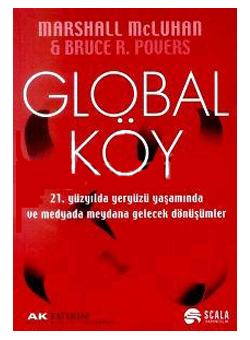




























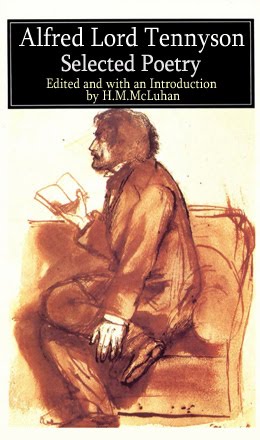






![PICNIC IN SPACE : The Great Minds of Our Time Film Series [1973]](https://blogger.googleusercontent.com/img/b/R29vZ2xl/AVvXsEjyov75DRIUBWcYLkzPYmupFy8CQ9dQ4Q798zDIN6jPNsSdBB_WuOcvPl4WjMAz10csG071oCO3BCUtIcKyHoIkCN0lCy0OxGCV_HrLXrGNKRpUiKMrqzkJh4LSc7jT_KrrqmClapSlVa8/s1600-r/PicnicInSpace.jpg)


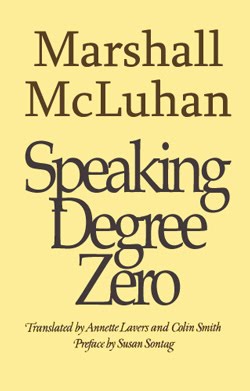






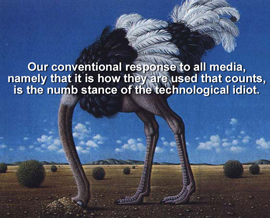


















![more Hidden ground [re:Bride] : the "flippancy" of tone seemed just "right"](https://blogger.googleusercontent.com/img/b/R29vZ2xl/AVvXsEg-hQyF9KGGhKYc73nUGmV1bStJ4fTJVh0-TL1ZtikLZEv5ppjhB3DOhFcVuzGq-kByrwtTAWgCcE173pA3UTIPe7h6xJjsPt7lRvNym007ZsdXenMDLNimKcwtaTOqkGleoxmXOeCKtxXL/s1600-r/LEAVISLEWIS.png)
















![BABA WAWA [TODAY SHOW, Toronto City Hall 1970]](https://blogger.googleusercontent.com/img/b/R29vZ2xl/AVvXsEjTZAIFkA07K36WGk951vmZnLPU99fOdNzlvVhyphenhyphenhKZEKu2n2AW5EA1CDZGaTk0aYRXUv7IOXG39igaikoE6SWm8j7QIG96wYRE54oBXwvlaNCJzp15vdkrcqR97IMMny-8sHjM-VDotTOaY/s1600-r/babaWawa.jpg)

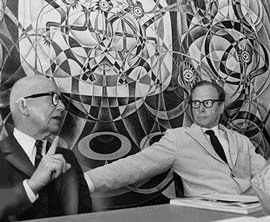

![enter the dragon : "typhon in america" [unpublished]](https://blogger.googleusercontent.com/img/b/R29vZ2xl/AVvXsEjdCnZdJ6JbaLc6hyUmUJo5UJ0m8WZSj_afYU9oRlHKIUgAIfcy2EPHNAptSRYEAmpOf0Xaa0B8iMgOTF302lY0Xmbyne0hvrdRyNo-t0Q-PPdzqX39uI3T5x5FppRPaQf9sSaXytrOpWVN/s1600-r/TIA.jpg)




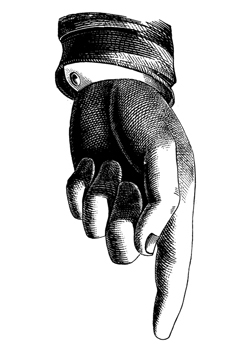






















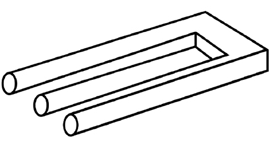









![Take Today [1972] : "the consumer becomes a producer..."](https://blogger.googleusercontent.com/img/b/R29vZ2xl/AVvXsEhA53bdVdTaXdQo1fDmrsI8oiAwF-3jampcanOq8uk3QMh8_ImkNsTiKd4-RnZY8Vbwqh1fymJiyCl1CSLcSonXHQM6XbnJYQi_Vu89gbAV4jVq73EtlbM3w6CthyphenhyphenV_pHEjE6eu_VhC489u/s1600-r/PROSUMER.jpg)








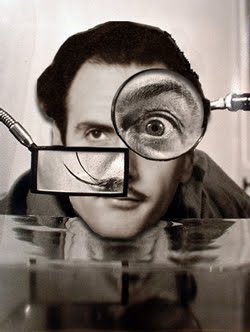















































































![" Outtragedy of poetscalds!, Acomedy of letters " [ FW 425.24]](https://blogger.googleusercontent.com/img/b/R29vZ2xl/AVvXsEhJMrJLN3oPUb25A2tjQtWZcZxA4wZB0IOvaIAvxosAUqlFc258HHvzvlnHHvKhKq7hG3epo76izY2Bu0HC3Cy-8S46Rf0Wni3L8j8jEfpT7sXK3UFlXBMtN2v2JdrmdxvWk8VWKjkhN4-9/s1600-r/preplexLP.png)











![mars[HAL]9000 : " Tomorrow is our permanent address."](https://blogger.googleusercontent.com/img/b/R29vZ2xl/AVvXsEhmblupqmUiuV3GbyayJiDRGEO63TEgwjHi-i8b0kVYDvXrKFWTCyl-e21la4QJXC4nDFDzx51Omi6fYPLJcqRHFoP6zSsL0CVZF98eMf6mxCE2WDfvMmT4q9G3X45-P0IYGDmliE0fCR3C/s1600-r/marsHAL9000_250.jpg)












































































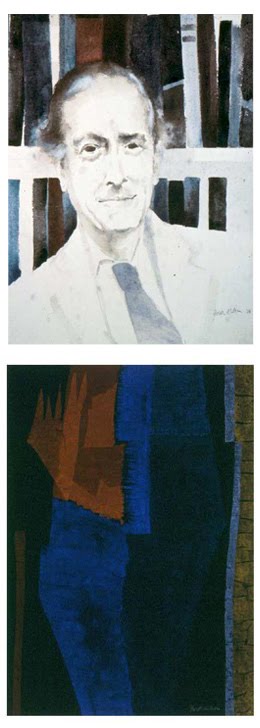















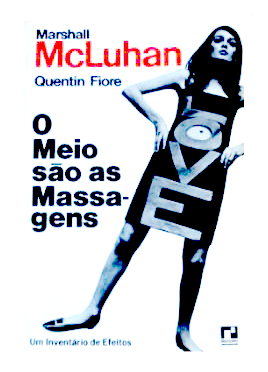





































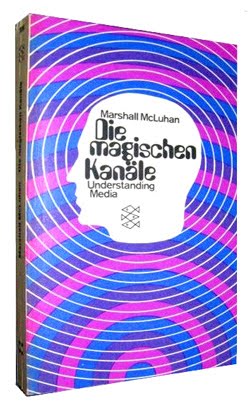
























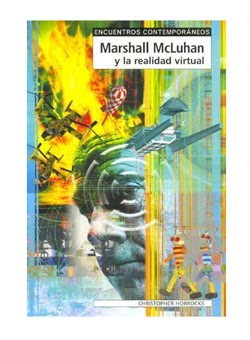




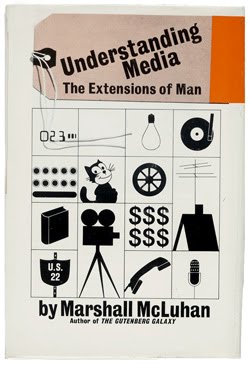









































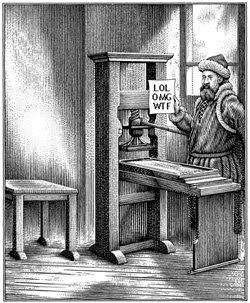








![Lucifer [from Latin] <br>meaning "light-bearer"](https://blogger.googleusercontent.com/img/b/R29vZ2xl/AVvXsEhq-2kZZOfh-Syv1Ewa0Ns2O6ZeP59pcsJp9ihhKcXCaovYZO_cKxffC5iSKOXFHr6E1jiHc6zedt1U6I95831RgpVdm3qk8-9C3y1yPyrCiQe4jgx-DsbeHnjKnw9t6Qx3ZM5TSYxiPj5H/s1600-r/lucifer.png)


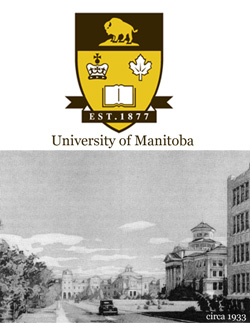










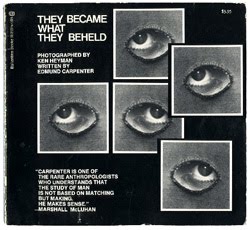






































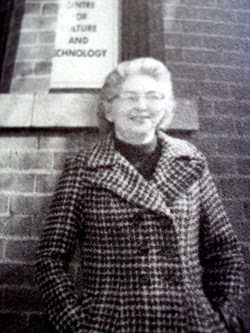
















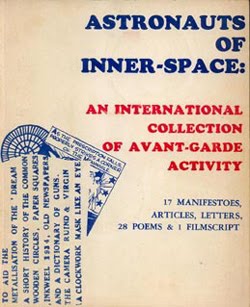












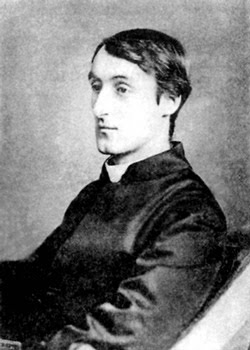


















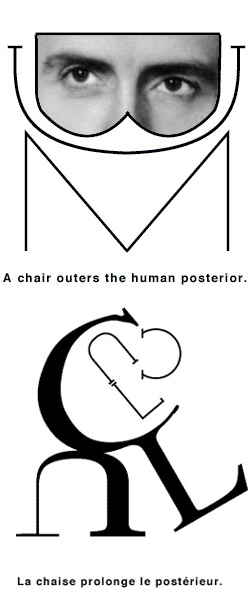






















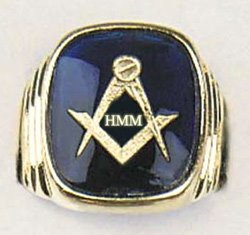















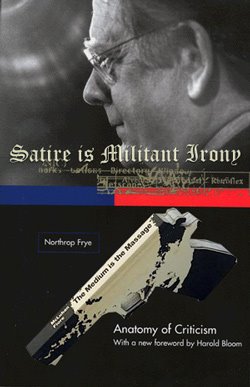
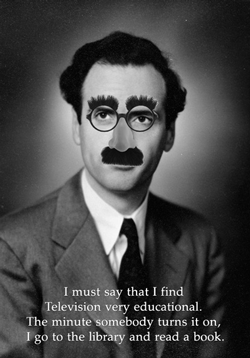






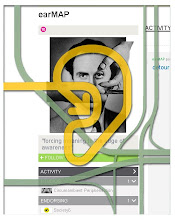















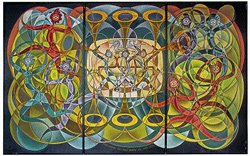










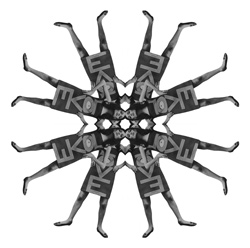



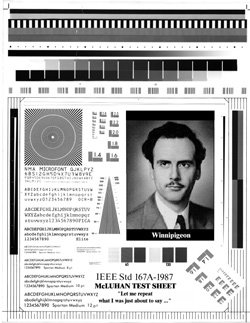

3 comments:
"What the reader sees will not be what he hears."
Theall on Theall :
Don Theall's description of his new book on McLuhan ...
"Since there has been some discussion of my forthcoming book
and some request for information, the following is brief synopsis of
_The Virtual McLuhan: Poetry, Prophecy, Piety and Technology_. It
will be published in late 2000 or 2001 by the McGill-Queeh's
University Press, having been awarded a grant in aid of publication
from the "Assistance to Scholarly Publishing Program" (ASPP), a joint
program of the Social Science and the Humanities Federations of
Canada. A brief note about the book follows, since like any long work
with considerable factual material covering a wide range of topics, it
can only be properly reviewed and discussed when it is available.
_The Virtual McLuhan_ contains hitherto unpublished
biographical information about the subject as well as autobiographical
information about the author in order to contextualize the emergence
of McLuhan's project in North American, and more particularly Toronto
(not then but which now considers itself the "big apple" of the North).
The book presents McLuhan as a very human and very charming
creative genius who like so many of his age vacillated between
tradition and modernity, between faith and anarchy. It is both highly
complimentary and critical, since it challenges the making of "secular
saints". Fundamentally, it argues that McLuhan following Vico and a
tradition within the human sciences [a term introduced by Dilthey and
used frequently since the 1960s to denote collectively the fields of
history, philosophy, religion, psychology, art, literature, law, politics,
economics, sociology, social theory and critical theory, and naturaly
the history of technology and science], is developing a new science
that is poetic and satiric - an alternative hermeneutic approach to the
human sciences's exploration of communication, culture and
technology. After all, Carpenter and he both throughout the 1950s
spoke of art such as Joyce's _Ulysses_ as a poetic sociology (and a
dynamic, vivsective art) an important refrain in his early seminars.
There will be chapters: on the poetics of the tetrad and its roots
in the trivium (the subject of his Ph.D. thesis) and modernism; Marshall
as a correspondent; the professor among the publicists as a media
hero and pop guru; his fix on cultural production and power; the role of
the occult, the gnostic and cults in his writing; his role as a North
American precursor of French theory with reference to Baudrillard,
Barthes, Derrida, Deleuze, etc.; McLuhan as artist and shaman; his
use of Joyce as a guide on the road to digiculture; McLuhan, the
modernist avant-garde and the "chaosmos"; and on the role of satire in
McLuhan and its relation to Wyndham Lewis and the tradition of
Lucianic and Varronian satire (the Menippean satire which has
assumed a particular importance after Bakhtin and post-structuralism).
Throughout the book the importance of his commitment to the
modernist arts from 1850 onward -- including not only the symbolists,
Eliot, Pound, Lewis and Joyce, but visual artists and the new lively arts
-- will be stressed as forging for him an interdisicplinary link between
the social sciences and the humanities which marked his work.
Nevertheless some attention will be given to the interplay of this
background with the social scientific traditions of the Chicago School
and its aftermath. An appendix will clarify various accounts of our
differences of opinion.
It should establish McLuhan as a complex human being
attractive, valuable, egotistic and exasperating so often characteristic
of genius. It should give a depth to his project as a precursor of a
necessary post-digital, para-human interdisciplinarity as well as
explaining his attractiveness to practicing artists, dissident academics,
proponents of new theologies, media practitioners and businessmen.
It will also provide an interpretation and critique that points to building
on and moving beyond McLuhan.
My perspective is complex and unapologetically intellectual, as
it was in my earlier study of him, but I believe positive, since neither
uncritical adulation or demonization or exploitation for one's own
purposes does justice to such a unique figure as H. Marshall
McLuhan."
http://www.amazon.com/review/R31ZYVZPCG8CDB
review of Theall's Virtual McLuhan by
Frank Zingrone
Post a Comment